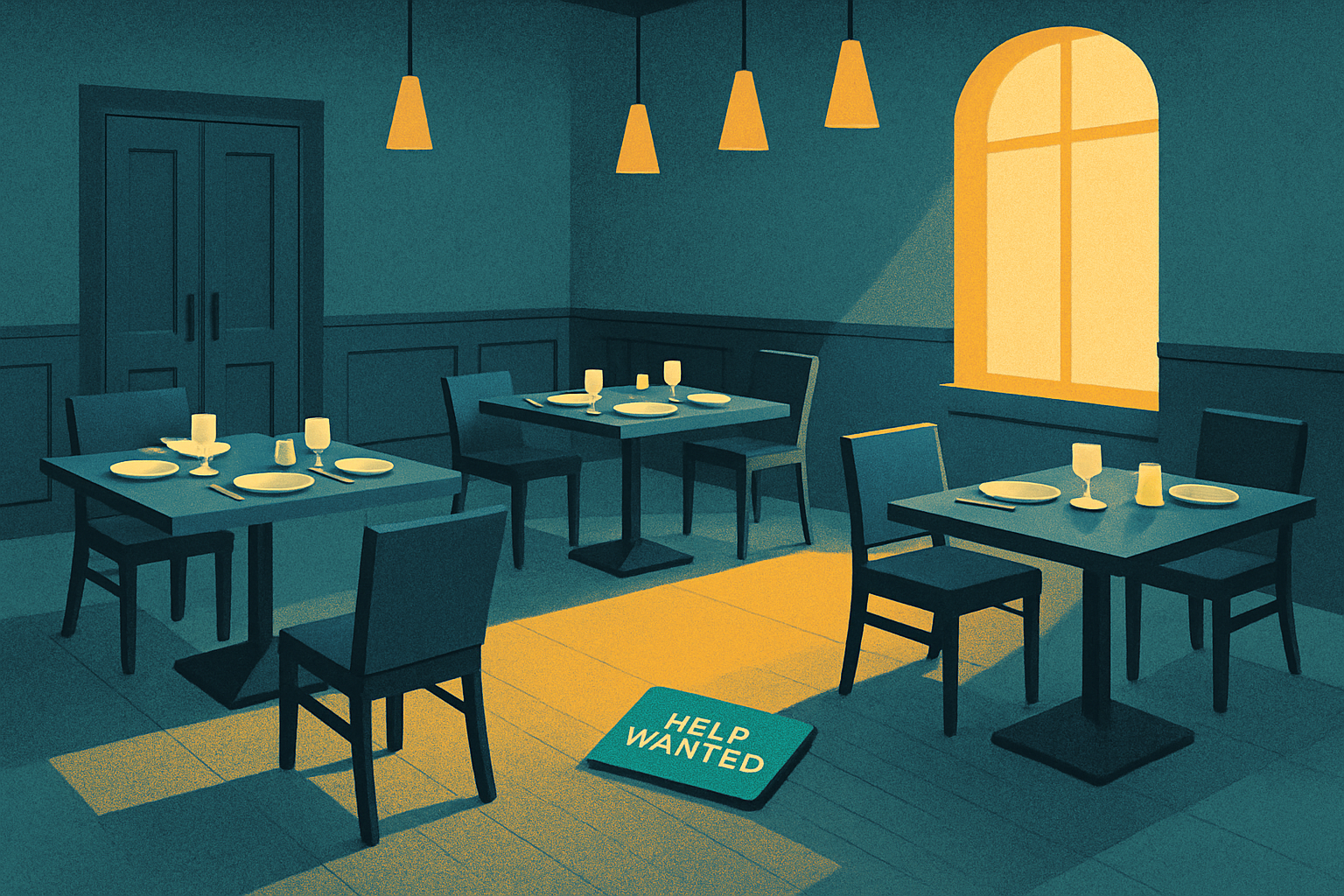The UK hospitality industry has experienced a significant downturn, shedding 69,000 jobs since the chancellor, Rachel Reeves, implemented an increase in employers’ national insurance contributions. This marks a stark contrast to the 18,000 jobs created during the same period last year under the previous government. Data from the Office for National Statistics (ONS) indicate these are the steepest peacetime job losses for the sector since records began, excluding the pandemic, raising alarms about the impact of current tax policies on this crucial British industry.
In response to these developments, the hospitality sector has addressed a letter to the prime minister, expressing concerns over the recent tax increases. Andrew Griffith, the shadow business secretary, commented, “Hospitality is the canary in the mine for the whole private sector,” highlighting the broader implications of the industry’s struggles. He further criticised the government’s approach, stating that small business closures often go unnoticed but are affecting high streets, pubs, and restaurants across the country.
**Tax Policy Blamed for Job Losses**
The job reductions follow Reeves’ announcement of a £40 billion tax package in the Autumn Budget, which included a £25 billion increase in employer national insurance contributions (NICs) that took effect in April. This rise elevated the rate from 13.8% to 15%, while the salary threshold was reduced to £5,000, impacting a large portion of part-time workers in hospitality. Kate Nicholls, chief executive of UKHospitality, has warned that if the current trend persists, up to 200,000 workers, nearly 6% of the sector’s 3.5 million-strong workforce, could lose their jobs within the policy’s first year.
Business confidence is declining as staffing cuts continue to widen. Recent research by accountancy firm S&W reveals that over half of UK businesses are already reducing staff to manage rising employment costs, with a third planning further cuts this summer. Hiring freezes and reduced hours are prevalent, especially in pubs, restaurants, and hotels. Claire Burden, an S&W partner, noted that businesses are scrutinising headcounts in response to increased national insurance costs, given that salaries constitute a significant portion of overall expenses. The study also found that 60% of firms are accelerating investment in automation and technology to replace labour, contributing to the broader decline in job vacancies and exacerbating the skills gap.
**Pressure Mounts on Starmer as MPs Sound Alarm**
The government faced intense scrutiny in the House of Commons, with MPs from all major parties criticising the “insurmountable burdens” placed on the hospitality sector. Liberal Democrat MP Alistair Carmichael cautioned that hospitality is being “taxed out of existence” and called for a change in political approach. Conservative MP Andrew Griffith described the government’s strategy as “hostile,” warning it jeopardises young people’s entry into the workforce. He argued that Britain’s reputation for innovation and business success is being undermined by what he termed Labour’s instinct to tax success.
**Industry Calls for Targeted NIC Relief and Reform**
In her letter to the prime minister, Nicholls described the tax changes as “socially regressive” and “unsustainable,” urging the government to extend the current NIC exemption for under-21s to include workers under 30 and those returning to the workforce after long-term unemployment. She argued that such a policy would incentivise hiring and reduce benefit dependency, ultimately being cost-neutral for the Treasury. UKHospitality also reported that 70% of businesses are now cutting staff, with one-third reducing trading hours, leading to earlier pub closures and restaurants no longer opening before lunch.
**Fiscal Headwinds Could Prompt Further Tax Moves**
Reeves now faces a £5 billion shortfall in public finances following Labour’s U-turn on welfare reforms, with leading economists suggesting further tax hikes may be necessary. Paul Johnson, director of the Institute for Fiscal Studies, has indicated that changes to income tax, national insurance, and VAT could be inevitable. Analysts at Deutsche Bank have warned that declining employment and sluggish growth could increase borrowing in the year’s second half. HSBC has highlighted the risk of a “doom loop” of higher taxes and weak growth, with speculation that the Chancellor may consider raising the top rate of dividend tax or increasing the surcharge on banks.
A Treasury spokesperson defended the NIC changes, stating: “Economic activity is at a record high, and 384,000 more people are in employment since last summer… we’ve shielded 250,000 retail, hospitality, and leisure properties from full business rates.”




